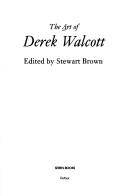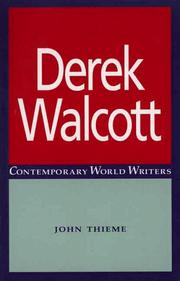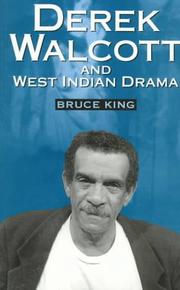| Listing 1 - 10 of 287 | << page >> |
Sort by
|
Book
ISBN: 3506728873 Year: 2005 Publisher: Paderborn : Paderborn : Ferdinand Schöningh, Nordrhein-Westfälische Akademie der Wissenschaften,
Abstract | Keywords | Export | Availability | Bookmark
 Loading...
Loading...Choose an application
- Reference Manager
- EndNote
- RefWorks (Direct export to RefWorks)

ISBN: 1854110217 1854110276 080231290X 9781854110275 Year: 1991 Publisher: Bridgend Seren
Abstract | Keywords | Export | Availability | Bookmark
 Loading...
Loading...Choose an application
- Reference Manager
- EndNote
- RefWorks (Direct export to RefWorks)

ISBN: 9780719042065 0719042062 0719042054 Year: 1999 Publisher: Manchester : Manchester University Press,
Abstract | Keywords | Export | Availability | Bookmark
 Loading...
Loading...Choose an application
- Reference Manager
- EndNote
- RefWorks (Direct export to RefWorks)
Book
ISSN: 00351571 ISBN: 9782130821854 2130821855 Year: 2019 Volume: 2019(2) Publisher: Paris: PUF,
Abstract | Keywords | Export | Availability | Bookmark
 Loading...
Loading...Choose an application
- Reference Manager
- EndNote
- RefWorks (Direct export to RefWorks)

ISBN: 9780198184645 0198184646 Year: 1997 Publisher: Oxford Clarendon
Abstract | Keywords | Export | Availability | Bookmark
 Loading...
Loading...Choose an application
- Reference Manager
- EndNote
- RefWorks (Direct export to RefWorks)
Book
ISBN: 9401210071 9789401210072 9789042037571 9042037571 1306315522 Year: 2013 Volume: 172 Publisher: Amsterdam Rodopi
Abstract | Keywords | Export | Availability | Bookmark
 Loading...
Loading...Choose an application
- Reference Manager
- EndNote
- RefWorks (Direct export to RefWorks)
During the same period in which Derek Walcott was pouring immense physical, emotional, and logistical resources into the foundation of a viable first-rate West Indian theatre company and continuing to write his inimitable poetry, he was also busy writing newspaper reviews, chiefly for the Trinidad Guardian . His prodigious reviewing activity extended far beyond those areas with which one might most readily associate his interests and convictions. As Gordon Rohlehr once presciently observed, “If one wants to see a quotidian workaday Walcott, one should go back to [his] well over five hundred articles, essays and reviews on painting, cinema, calypso, carnival, drama and literature,” articles which “reveal a rich, various, witty and scrupulous intelligence in which generous humour counterpoints acerbity.” These articles capture the vitality of Caribbean culture and shed additional light on the aesthetic preoccupations expressed in Walcott’s essays published in journals. The editors have examined the corpus of Walcott’s journalistic activity from its beginnings in 1950 to its peak in the early 1970's, and have made a generous selection of material from the Guardian , along with occasional pieces from such sources as Public Opinion (Kingston) and The Voice of St. Lucia (Castries). The articles in Volume 2 are organized as follows: the performing arts; general surveys of anglophone Caribbean drama, theatre, and society; festivals, theatre companies, and productions; British and American drama; dance and music theatre; Carnival and calypso; and cinema screenings in Trinidad. Volume 2 additionally contains an exhaustive annotated and cross-referenced chronological bibliography of Walcott’s journalism up to 1990. The co-editor Christopher Balme has written a searching introductory essay on a central theme – here, a survey of West Indian theatre and Walcott’s engagement with it, particularly the idea of a ‘National Theatre’, coupled with an illustrative discussion of the playwright’s seminal dramatic spectacle Drums and Colours .
Book
ISBN: 9401210063 9789401210065 9042037563 1306350700 9789042037564 Year: 2013 Volume: 171 Publisher: Amsterdam
Abstract | Keywords | Export | Availability | Bookmark
 Loading...
Loading...Choose an application
- Reference Manager
- EndNote
- RefWorks (Direct export to RefWorks)
During the same period in which Derek Walcott was pouring immense physical, emotional, and logistical resources into the foundation of a viable first-rate West Indian theatre company and continuing to write his inimitable poetry, he was also busy writing newspaper reviews, chiefly for the Trinidad Guardian . His prodigious reviewing activity extended far beyond those areas with which one might most readily associate his interests and convictions. As Gordon Rohlehr once presciently observed, “If one wants to see a quotidian workaday Walcott, one should go back to [his] well over five hundred articles, essays and reviews on painting, cinema, calypso, carnival, drama and literature,” articles which “reveal a rich, various, witty and scrupulous intelligence in which generous humour counterpoints acerbity.” These articles capture the vitality of Caribbean culture and shed additional light on the aesthetic preoccupations expressed in Walcott’s essays published in journals. The editors have examined the corpus of Walcott’s journalistic activity from its beginnings in 1950 to its peak in the early 1970s, and have made a generous selection of material from the Guardian , along with occasional pieces from such sources as Public Opinion (Kingston) and The Voice of St. Lucia (Castries). The articles in Volume 1 are organized as follows: Caribbean society, culture, and the arts generally; literature and society; periodicals; anglophone poetry, prose fiction, and non-fiction; African and other literatures; and the visual arts (Caribbean and beyond). The volume closes with a selection of Walcott’s mis-cellaneous satirical essays. The volume editor Gordon Collier has written a searching introductory essay on a central theme – here, a critical, comparative analysis of Walcott’s development as journalist against the historical background of press activity in the Caribbean, coupled with an illustrative discussion (drawing on Walcott’s newspaper articles) of his attitudes towards prose fiction and poetry.
Book
ISBN: 9780691225234 9780691225258 Year: 2023 Publisher: Princeton, N.J. Princeton University Press
Abstract | Keywords | Export | Availability | Bookmark
 Loading...
Loading...Choose an application
- Reference Manager
- EndNote
- RefWorks (Direct export to RefWorks)
"Derek Parfit (1942-2017) is the most famous philosopher you've likely never heard of. In 1984, Parfit published what was, and is still, hailed by many philosophers as a work of genius - one of the most cited works of philosophy since World War II, Reasons and Persons. At its core, he argued that we should be concerned less with our own interests and more with the common good. His book brims with brilliant argumentative detail and stunningly inventive thought experiments that challenged contemporary views about what it means to be a person, why one should forego concern for oneself as an identity that persists over time, what it means to act on the basis of reasons, and what we owe to future generations. Parfit also - unfashionably at the time - believed in a kind of grand unified theory of morality, what he called theory x, a non-religious ethical theory wherein all the major moral theories were converging from different sides on the same mountaintop. Parfit has had an enormous influence not only on philosophy, but also beyond, particularly amongst those in the fields of climate ethics, poverty relief, and charitable giving. In this book, the first-full scale biography of Parfit, Dave Edmonds tells the story of the thinker that many philosophers consider the most important moral philosopher of the last century. Edmonds' rendering of the man in full skilfully illuminates the person behind the acclaimed philosopher. Despite Parfit's extraordinary mind, outward appearances suggest his was also an extraordinarily uneventful life - one largely spent in cloistered institutions from Eton to Oxford and one seemingly monomaniacally devoted to ideas. Edmonds' aim is to show how this son and grandson of missionaries went from a genial and outgoing history student to a captivating, yet monkish philosopher singularly devoted to saving morality. In doing so, Edmonds makes Parfit's profound, but often impenetrable, ideas accessible to a broad audience and gives life and body to the thoughts of a seemingly pure thinker that captured the imagination of a generation of philosophers"-- "From the bestselling coauthor of Wittgenstein's Poker, an entertaining and illuminating biography of a brilliant philosopher who tried to rescue morality from nihilismDerek Parfit (1942-2017) is the most famous philosopher most people have never heard of. Regarded by some as the greatest moral thinker since John Stuart Mill, Parfit was anything but a public intellectual. Yet his ideas have shaped the way philosophers think about things that affect us all: equality, altruism, what we owe to future generations, and even what it means to be a person. In Parfit, David Edmonds presents the first biography of an intriguing, obsessive, and eccentric genius.Believing that we should be less concerned with ourselves and more with the common good, Parfit dedicated himself to the pursuit of philosophical progress to an extraordinary degree. He always wore gray trousers and a white shirt so as not to lose precious time picking out clothes, he varied his diet as little as possible, and he had only one serious non-philosophical interest, taking photos of Oxford, Venice, and St. Petersburg. In the latter half of his life, he single-mindedly devoted himself to a desperate attempt to rescue secular morality-morality without God-by arguing that it has an objective, rational basis. For Parfit, the stakes could scarcely have been higher. If he couldn't demonstrate that there are objective facts about right and wrong, he believed, his life was futile and all our lives were meaningless.Connecting Parfit's work and life and offering a clear introduction to his profound and challenging ideas, Parfit is a powerful portrait of an extraordinary thinker who continues to have a remarkable influence on the world of ideas"--
Book
Year: 1984 Publisher: London : Quartet books,
Abstract | Keywords | Export | Availability | Bookmark
 Loading...
Loading...Choose an application
- Reference Manager
- EndNote
- RefWorks (Direct export to RefWorks)
Article
Abstract | Keywords | Export | Availability | Bookmark
 Loading...
Loading...Choose an application
- Reference Manager
- EndNote
- RefWorks (Direct export to RefWorks)
| Listing 1 - 10 of 287 | << page >> |
Sort by
|

 Search
Search Feedback
Feedback About UniCat
About UniCat  Help
Help News
News